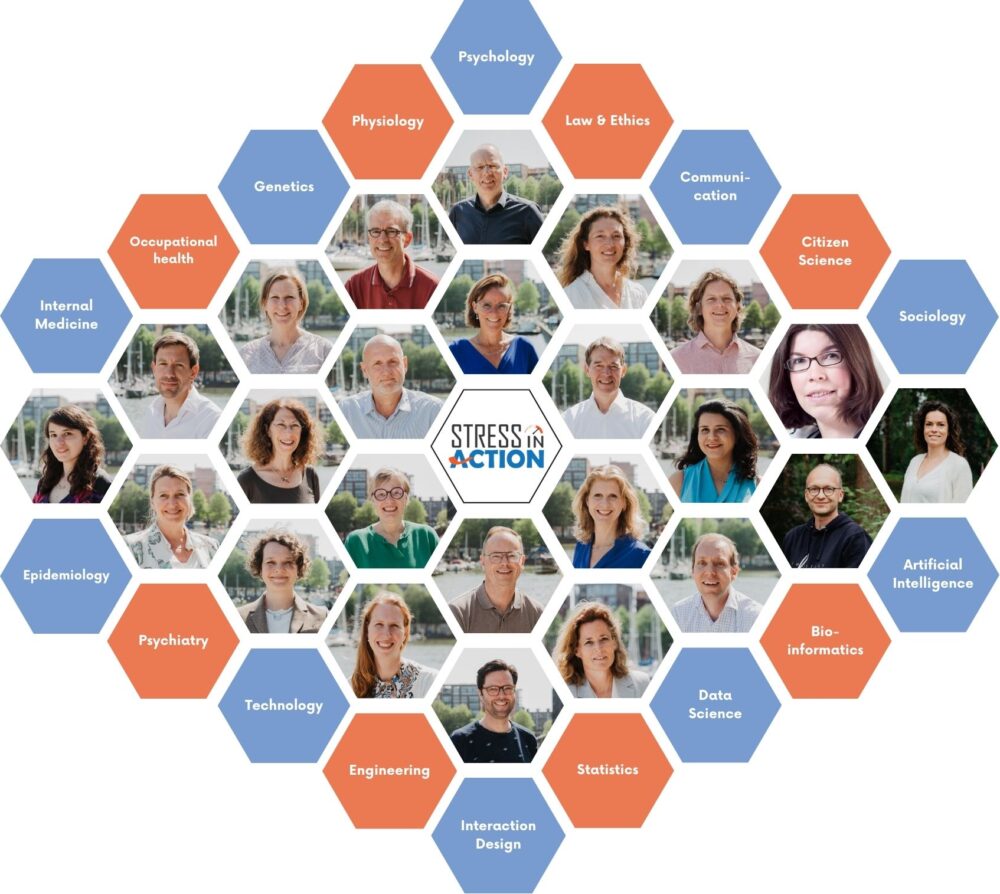Matthijs Noordzij
Core-applicant

Title(s)
Professor of Technology in Health Care
First name
Matthijs
Initials
M.L.
Last Name
Noordzij
FTE
0.4 fte/year for 10 years
Institute
Universiteit Twente
Matthijs Noordzij (1977, PhD) studies how embodied, non-intrusive technology should be designed and can support and change mental healthcare and self-management. He obtained his PhD in 2005 (cum laude) and was trained as a cognitive neuroscientist.
After this training he established himself at the University of Twente setting up a successful Human Factors and Engineering psychology Master, and building bridges between the engineering and social science departments in a variety of multi-disciplinary research projects. His long term vision is to realize design and integration of technology in mental healthcare that is complementary to the human potential of client and health professional. It envisions technology that empowers people to pay attention to what is truly important at any given moment, in any given context.
To this end he has studied both the scientific and technological underpinnings, and the design aspects of (wearable) technology in mental healthcare. Firstly, this has entailed working out new scientific (statistical) standards for validating new wearable technology that are measuring important aspects of human physiology for use in (mental) healthcare and research.
Secondly, he coordinated several innovative field studies that tracked people (with subjective and objective measures) with severe problems related to stress, aggression or addiction over long periods of time trying to establish possible links between their bodies, thoughts and environments.
Thirdly, with multi-disciplinary teams (clients, caregivers, managers, designers, scientists) he co-designed ambulatory biofeedback and novel bio cueing systems specifically tailored to mental healthcare system to further support existing therapies and to create entirely new ways of working.
- Matthijs Noordzij has published widely, mostly in high-ranking international journals. He has first- or senior-authored papers in e.g. Psychophysiology, PNAS, JMIR Mhealth and Uhealth, Behavior Research Methods, but also engineering papers for highly selective conferences (e.g. CHI), indicating he publishes on wearable technology for both engineering and (social) science disciplines.
- Noordzij is frequently invited to present at national and international seminars or conferences (>50 presentations) and has given keynote lectures for national and international conferences.
- Noordzij co-founded and leads the successful ‘Wearables in Practice’ science-practice network which provides a platform for knowledge valorisation and societally relevant research in forensic and mental healthcare. This is part of a global movement of Citizen Science to address the increasing scepticism of many citizens and professionals regarding scientific activities and communication.
- Noordzij is currently project leader of the 5-year (2020-2024) public-private, multi-disciplinary NWO funded project Designing compassionate technology with high societal readiness levels for mental healthcare. It directly proposes to offer novel design methodologies and technology solutions that address the low adherence of patients and hesitation of professionals to use and blend technology into mental healthcare. Similar to Stress in Action this is a project in which academics from the fields of (clinical) psychology, interaction design, computer science and philosophy work together with both healthcare organisations and companies to jointly realize a transition in mental healthcare.
- Noordzij has designed in co-creation with professionals and patients two novel biofeedback / biocueing systems (MoodRadar-DAVID and Sense-IT), which pioneer real-time physiological feedback and explore how they can be integrated into existing (non-technological) stress and emotion regulation interventions. The Sense-IT smartwatch+app combo, for example, provides heartrate based biocueing with EMA functionality. The app was designed following user centred design principles together with vulnerable groups and the number of circles provide simple, neutral and personalized (visual and haptic) feedback on heart rate levels (correcting for physical movement).
He also coordinates the further development of these apps and leading clinical trials with a consortium consisting of healthcare institutions and knowledge institutes. - He obtained > 1M€ of funding on projects that both set standards for rigorous use of wearable technology in daily life and introduce ethical design principles for technology in mental healthcare.
- Noordzij is a research fellow of the Design Lab at UT. The Design Lab is an active hub for collaboration between the social science and engineering researchers to collaborate and connect to societal challenges. Noordzij has hosted events here for the Wearables in Practice community and his Compassionate Technology project is one of the corner stone projects of the Responsible Design theme. As a research fellow Noordzij can connect Stress in Action to the Design Lab and give it a central place to connect to the University of Twente ecosystem of creative engineers.
- Ter Harmsel JF, Noordzij ML, Goudriaan AE, Dekker JJM, Swinkels LTA, Van der Pol TM, Popma A. Biocueing and Ambulatory Biofeedback to Enhance Emotion Regulation Among Psychiatric and Non-Psychiatric Populations: a Systematic Review. International Journal of Psychophysiology 2021; in press.
- Derks YPMJ., Klaassen R, Westerhof GJ, Bohlmeijer ET, Noordzij ML. Development of an Ambulatory Biofeedback App to Enhance Emotional Awareness in Patients with Borderline Personality Disorder: A Multi-cycle Usability Testing Study. JMIR MHealth and UHealth 2019;7(10):e13479.
- Nelson EC, Verhagen T, Noordzij ML. Health empowerment through activity trackers: An empirical smart wristband study. Computers in Human Behavior 2016;62:364–374.
- Noordzij ML, Scholten P, Laroy-Noordzij ME. Measuring electrodermal activity of both individuals with severe mental disabilities and their caretakers during episodes of challenging behavior. In: Spink AJ, Grieco F, Krips OE, Loijens LWS, Noldus LPJJ, Zimmerman PH (Eds.), Measuring Behavior (pp. 201–205). 2012, Utrecht: The Netherlands.
- van Lier HG, Pieterse ME, Garde A, Postel MG, de Haan HA, Vollenbroek-Hutten MMR, Schraagen JM, Noordzij ML. A standardized validity assessment protocol for physiological signals from wearable technology: Methodological underpinnings and an application to the E4 biosensor. Behavior Research Methods 2020;52:607-629.

